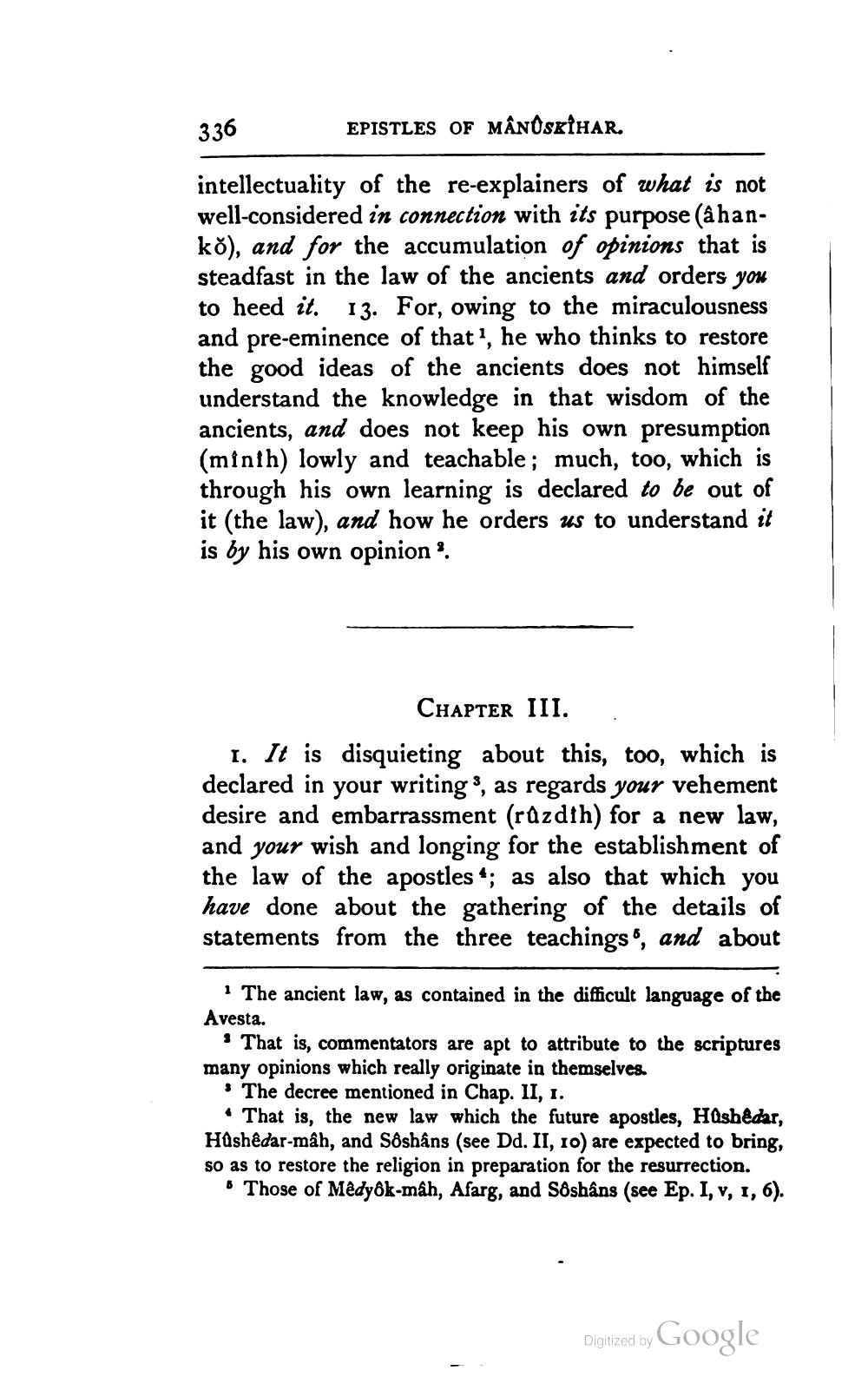________________
336
EPISTLES OF MÂNUSKÎhar.
intellectuality of the re-explainers of what is not well-considered in connection with its purpose (ahanko), and for the accumulation of opinions that is steadfast in the law of the ancients and orders you to heed it. 13. For, owing to the miraculousness and pre-eminence of that?, he who thinks to restore the good ideas of the ancients does not himself understand the knowledge in that wisdom of the ancients, and does not keep his own presumption (minih) lowly and teachable; much, too, which is through his own learning is declared to be out of it (the law), and how he orders us to understand it is by his own opinion
CHAPTER III. 1. It is disquieting about this, too, which is declared in your writings, as regards your vehement desire and embarrassment (razdih) for a new law, and your wish and longing for the establishment of the law of the apostles *; as also that which you have done about the gathering of the details of statements from the three teachings', and about
1 The ancient law, as contained in the difficult language of the Avesta.
? That is, commentators are apt to attribute to the scriptures many opinions which really originate in themselves.
• The decree mentioned in Chap. II, 1.
• That is, the new law which the future apostles, Hashedar, Húshedar-mâh, and Sôsháns (see Dd. II, 10) are expected to bring, so as to restore the religion in preparation for the resurrection.
• Those of Medyok-mah, Afarg, and Soshâns (see Ep. I, v, 1, 6).
Digitized by Google




